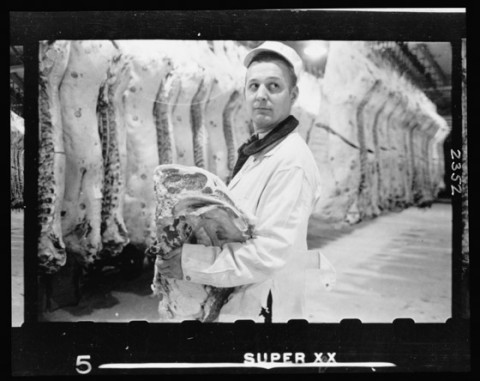My father’s butcher shop: Lessons learned and unlearned

My father was a butcher. His meat market, within walking distance of our home, was just off of Main Street in Kalispell, our small Montana town. By the time I was five years old, I was permitted to walk by myself the five or six blocks from home to his market and work for him. Work at that time of my life consisted of accompanying him across the street to the Silver Star Café. He would have a cup of coffee with the cook, Phil, and take down the order for the next day's supply of hamburger, steaks, pork chops, sausage and liver. The waitress always brought me a donut and a glass of milk.
My father wore a white butcher's apron, even when he went across the street to the café. I wore one too. My mother made it out of flour sacks, identical to my father's except for its size. She made me a new apron every year to match my growth. When I put on my apron in the butcher shop, I entered the adult world. And sitting on the counter stool in the café, being served alongside my father, was confirmation.
By this time I knew the story of the boy Samuel who had been "lent to the Lord" by his parents to live and work in the temple at Shiloh with Eli the priest. His parents, Elkanah and Hannah, visited him at Shiloh every year. His mother made him a priest's robe to wear, an ephod, as he assisted Eli. Every year as he added inches to his height, she would make him a new robe to fit his newly acquired stature. I knew exactly what that robe, that ephod, looked like—didn't I wear it every time I worked with my father? Didn't I get a new one every time I had grown another inch or two? I might have been the only person in our town who knew what an ephod actually looked like.




